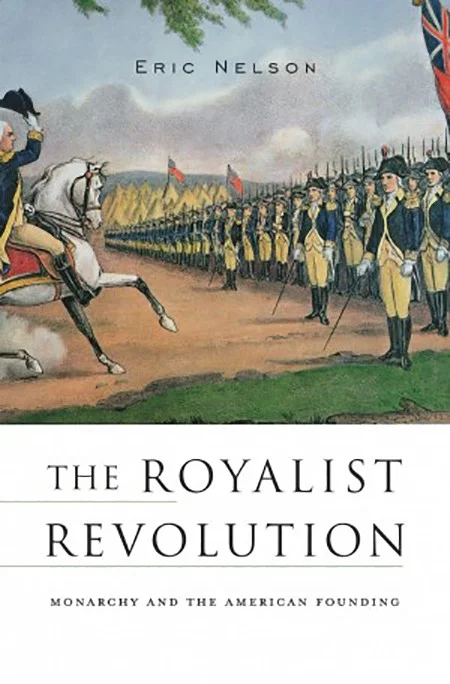This year’s four honorees spark new thinking on the American Revolution: its causes and principles, the meaning of liberty and freedom in the young democracy, and the impact of the Revolution that reverberated throughout the 18th-century Atlantic world.
Nick Bunker’s An Empire on the Edge: How Britain Came to Fight America (Knopf) probes Great Britain’s internal tensions on the eve of revolution.
In The Royalist Revolution: Monarchy and the American Founding (Harvard) Eric Nelson turns upside down the conventional image of the war as a rebellion against a tyrannical king.
Richard Dunn’s new book, A Tale of Two Plantations: Slave Life and Labor in Jamaica and Virginia (Harvard), tackles one of the American Revolution’s most challenging issues: human bondage in an age of liberty.
And rounding out the slate of finalists, François Furstenberg’s collective biography, When the United States Spoke French: Five Refugees Who Shaped a Nation (Penguin Press), explores how former French revolutionaries, émigrés to Philadelphia, influenced the growth of the new American republic.
Distinguished historians Rosemarie Zagarri, Philip Morgan and Ted Widmer served as the jury that selected the four finalists from a field of nearly 70 books published in the past year.
An Empire on Edge: How Britain Came to Fight America
by Nick Bunker
"An Empire on the Edge: How Britain Came to Fight America” (Knopf) probes Great Britain’s internal tensions on the eve of revolution.
Nick Bunker is an independent scholar in Lincolnshire, England.
A Tale of Two Plantations: Slave Life and Labor in Jamaica and Virginia
by Richard S. Dunn
“A Tale of Two Plantations: Slave Life and Labor in Jamaica and Virginia” (Harvard), tackles one of the American Revolution’s most challenging issues: human bondage in an age of liberty.
Richard S. Dunn is Roy F. and Jeannette P. Nichols Professor Emeritus of American History at the University of Pennsylvania. He is the founding director of the McNeil Center for Early American Studies.
When The United Spoke French: Five Refugees Who Shaped a Nation
by François Furstenberg
“When the United States Spoke French: Five Refugees Who Shaped a Nation” (Penguin Press), explores how former French revolutionaries, émigrés to Philadelphia, influenced the growth of the new American republic.
François Furstenberg is an associate professor of history at Johns Hopkins University.
The Royalist Revolution: Monarchy and the American Founding
by Eric Nelson
“The Royalist Revolution: Monarchy and the American Founding” (Harvard) turns upside down the conventional image of the war as a rebellion against a tyrannical king.
Eric Nelson is the Robert M. Beren Professor of Government at Harvard University.
Browse our collection of previous winners and nominees of the George Washington Book Prize.
Shop NowAbout the George Washington Book Prize
The George Washington Book Prize is one of the nation’s largest and most prestigious literary awards. Now in its tenth year, the $50,000 George Washington Book Prize honors its namesake by recognizing the year’s best new books on early American history. The prize ranks among the largest and most prestigious honors in the publishing industry.
The three institutions that sponsor the prize — Washington College, the Gilder Lehrman Institute of American History, and George Washington's Mount Vernon — are devoted to furthering historical scholarship that contributes to the public understanding of the American past.
Beyond merely promoting new scholarly works and research developments, the award pays special attention to works that have the potential to inspire the public at large to learn more about American history.
2014 Winner: Andrew Jackson O’Shaughnessy
The 2014 George Washington Book Prize was awarded to the noted historian Andrew Jackson O’Shaughnessy for The Men Who Lost America: British Leadership, the American Revolution, and the Fate of the Empire.
Shop NowPast Winners
| 2018 Kevin J. Hayes, George Washington: A Life in Books |
2017 Nathaniel Philbrick, Valiant Ambition: George Washington, Benedict Arnold, and the Fate of the American Revolution (Penguin Books) |
|
| 2016 Flora Fraser, The Washingtons: George and Martha, “Join’d by Friendship, Crown’d by Love.” (Knopf) |
2015 Nick Bunker, An Empire on Edge: How Britain Came to Fight America (Knopf) |
2014 Andrew Jackson O’Shaughnessy, The Men Who Lost America: British Leadership, the American Revolution, and the Fate of the Empire (Yale) |
| 2013 Stephen Brumwell, George Washington: Gentleman Warrior (Quercus) |
2012 Maya Jasanoff, Liberty’s Exiles: American Loyalists in the Revolutionary World (Knopf) |
2011 Pauline Maier, Ratification: The People Debate the Constitution, 1787-1789 (Simon & Schuster) |
| 2010 Richard Beeman, Plain, Honest Men: The Making of the American Constitution (Random House) |
2009 Annette Gordon-Reed, The Hemingses of Monticello: An American Family (Norton) |
2008 Marcus Rediker, The Slave Ship: A Human History (Viking) |
| 2007 Charles Rappleye, Sons of Providence: The Brown Brothers, the Slave Trade, and the American Revolution (Simon & Schuster) |
2006 Stacy Schiff, A Great Improvisation: Franklin, France, and the Birth of America (Henry Holt) |
2005 Ron Chernow, Alexander Hamilton (Penguin Press) |





